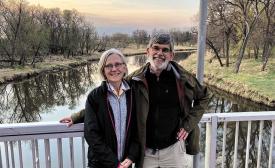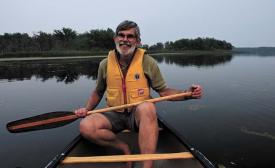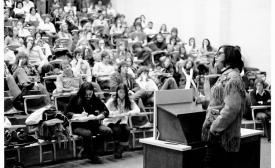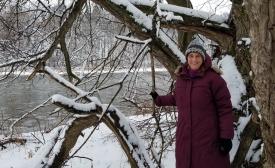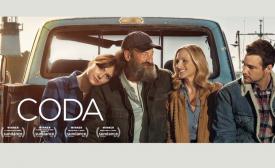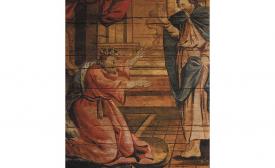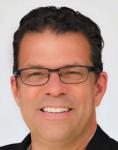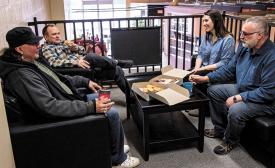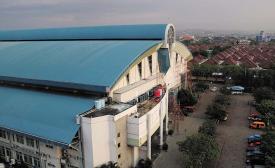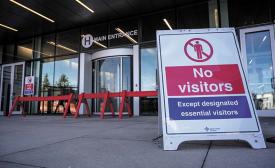Volume 26, Number 3
Citizens of a city on a hill
In the final days of January, a Christian acquaintance of mine started sharing social media posts supporting the “Freedom convoy” of truckers driving across Canada. The destination of this large moving protest was Ottawa, where the protesters planned to present their demands to federal leaders.
Biblical companions on my cancer journey
My family does cancer in a big way. In my immediate family of five members, there have been 10 occasions when a doctor told one of us that we have cancer, or that, despite the treatments, the cancer has returned. My wife Esther has had two rounds of breast cancer. Our son Tim, who was born with significant physical and mental disabilities, was diagnosed with a brain tumour when he was three.
Readers write: February 7, 2022 issue
Writers speak out in support of sexual-abuse survivor
Re: “A survivor of sexual abuse speaks out,” Jan. 10, page 13.
I love that phrase that you use to describe yourself: “a fierce pacifist.”
Passing on what we have received
There is something about snowstorms that brings out the best in people. A stuck car will quickly attract a group to help push it out. My wife and I often find our neighbour has shovelled our walks before we get to them. After one particularly intense storm, six neighbours got their snowblowers together and worked in tandem to clear the street.
Harold Cardinal
Cree chief, lawyer and author Harold Cardinal speaks at a symposium on “Native Peoples” at the University of Waterloo, Ont., in 1976. The event was planned by Conrad Grebel College students, and attracted Indigenous students from other universities, as well as Dene and Haudenosaunee participants and civil servants.
Communion with creation
I’ve been pondering a new-to-me thought in the last few weeks. In reviewing the Scripture texts selected for Anabaptist World Fellowship Sunday this year, from the worship resources produced by Indonesian Anabaptist church leaders, I stayed with Psalm 104.
Solitude and community
Almost 400 years ago, the French mathematician and philosopher Blaise Pascal wrote, “All of humanity’s problems stem from [people’s] inability to sit quietly in a room alone.”
Pascal was probably being hyperbolic, but he was making a profound point, one that aligns with something I discovered and wrote about during my own recent season of solitude:
Be at peace?
I once memorized Romans 12, and verse 18 always stuck with me: “If it is possible, as far as it depends on you, live at peace with everyone.” As Christians, shouldn’t we be at peace with everyone? Shouldn’t we make all efforts to mend relationships and right wrongs?
Well, maybe it doesn’t always work out that way.
‘The ears of the family’
A few months ago, my wife and I watched a film called CODA. Seventeen-year-old Ruby is a child of deaf adults (CODA). Her parents and brother, who is also deaf, rely on her to interpret the outside world to them. They need her to be present on the fishing boat on which they earn their living, to monitor radio communications and listen for warnings, among other things.
FAQs: MC Canada sexual misconduct policy
‘Trust is foundational in Christian community’
Mennonite Church Canada and MC U.S.A. are collaborating to create a centralized, comprehensive guidebook for regional churches, conferences and congregations that addresses prevention of abuse by lay and credentialled leaders, as well as leadership accountability. The prevention and accountability project is expected to be completed in early 2023.
Restorative justice program faces uncertain future
“There’s certainly a sense of urgency and immediacy to our request,” says Kerry Reimer, director of Parkland Restorative Justice, based out of Prince Albert, Sask.
One of Parkland’s main programs, Circles of Support and Accountability (CoSA), has been sustained largely through a federal funding initiative, but that funding is set to expire on March 31.
Crossing barriers to reach out to the other
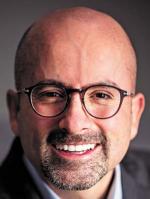
Training course helps navigate difficult COVID-19 conversations
Right now it feels hard to believe, but eventually the COVID-19 pandemic will end. What will last longer are the strained and hurt relationships the virus has created.
Mediation Services in Winnipeg launched a new training program on Dec. 6 to help people learn how to navigate difficult conversations and maintain relationships when they disagree.
Pandemic parameters during the fifth wave

Fill the Bus campaign was held in December 2021 when the United Mennonite Home residents, families, staff, suppliers and community members filled the home’s bus with toys, personal-care items, non-perishable food, clothing and gift cards to support the local Community Services Village of Hope. (United Mennonite Home archives photo)
At the beginning of this pandemic, long-term-care homes were hit hard, with residents contracting the COVID-19 virus and many of them died of it.
Walter Sguazzin, executive director of the United Mennonite Home in Vineland, Ont., is happy to declare that not one resident had contracted, or died, of COVID-19 and its variants during the first four waves of the pandemic.
Moses Mugisha’s gift of song to God
Born in the African country of Rwanda, Moses Mugisha and his family moved to Tanzania, because of poverty and other circumstances. They lived there as refugees for almost six years.



